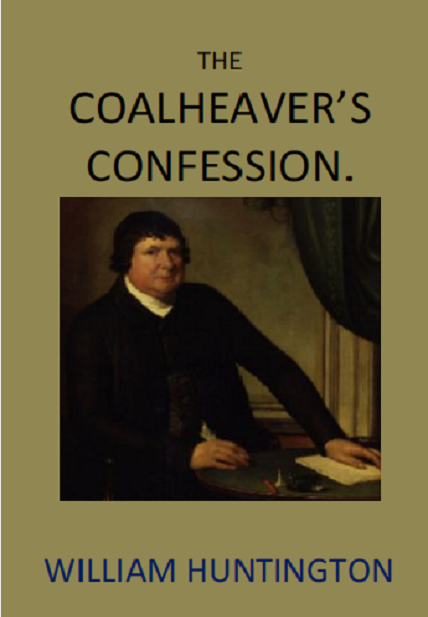By Wiliam Huntington.

The Coalheaver’s Confession.
By William Huntington (1745-1813)
About the author:
William Huntington (1745-1813) was an English preacher who often used “S.S.,” which he interpreted to stand for “Sinner Saved.” He is best known for his eccentric and orthodox religious views, as well as his colorful personality.
Here are some key points about William Huntington:
Early Life and Conversion: William Huntington was born in Thurnscoe, Yorkshire, England, in 1745. He had a difficult and troubled early life, marked by poverty and moral depravity. However, he experienced a powerful religious conversion in 1769 when he believed he received a direct call from God.
Huntington never received formal theological training, but he believed that God had appointed him to preach and teach. He referred to himself as “S.S.” or “Sinner Saved,” emphasizing his belief that he was a saved sinner chosen by God for a special mission.
Huntington’s theological views were orthodox and often controversial to theological views of that days.. He was an Calvinist and believed in predestination , asserting that God had predetermined who would be saved and who would be damned, with no opportunity for human choice or free will.
Huntington was a prolific writer and authored numerous books and pamphlets during his lifetime. His writings mainly focused on his theological views, his own spiritual experiences, and his interpretations of biblical passages. His works gained a following among some evangelical circles in England.
Huntington was known for his eccentric and idiosyncratic behavior. He often wore distinctive clothing, such as a large wig, and was known to carry around a staff, which he called his “prophet’s staff.” He also had a habit of giving colorful nicknames to people he encountered.
Huntington’s preaching ministry primarily took place in London and the surrounding areas.
About The Coalheaver’s Confession:
The Coalheaver’s Confession is a work attributed to William Huntington, the English preacher and writer mentioned earlier. In this work, Huntington presents a narrative or confession of a coalheaver, a term referring to someone who works with coal, often in the role of a laborer involved in transporting or handling coal. The confession likely details the individual’s spiritual experiences, struggles, and encounters with religious themes.
As with much of Huntington’s writing, The Coalheaver’s Confession is likely to reflect his theological views, which include elements of Calvinism and an emphasis on the idea of being a chosen “Sinner Saved.” The work may provide insights into Huntington’s perspectives on salvation, divine grace, and the personal experiences of those he considered recipients of God’s mercy.